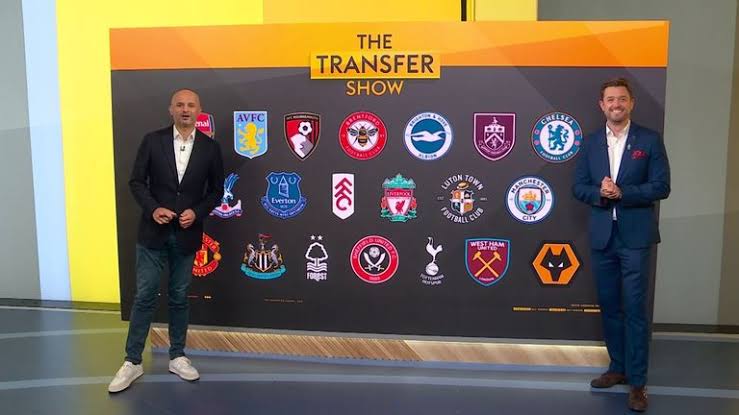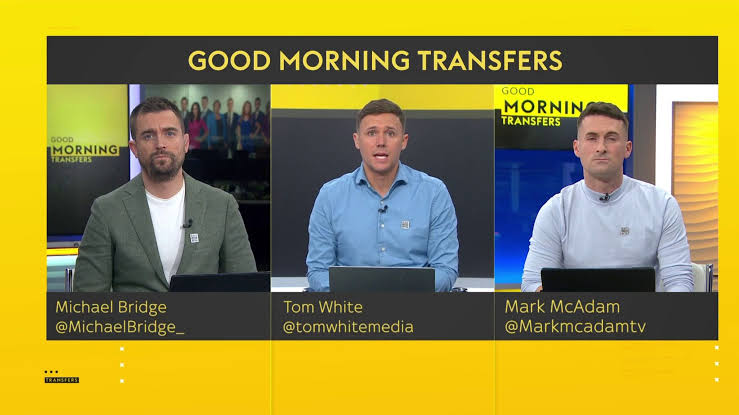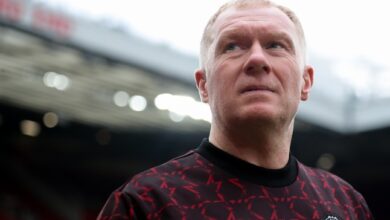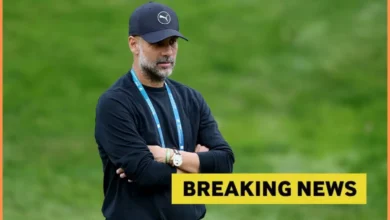President confirms Spurs have a sell-on clause inserted into deal under one condition

Real Betis president Angel Haro has confirmed that Tottenham Hotspur Football Club will be entitled to a percentage of any future sale of midfielder Johnny Cardoso if the North London club does not exercise their option to purchase the player next summer.
This revelation provides clarity on the terms of the unusual agreement reached between Tottenham and Real Betis as part of the transfer of Giovani Lo Celso to the Spanish club on the final day of the recent transfer window.
The deal struck between Tottenham and Real Betis regarding Johnny Cardoso has been the subject of much speculation and interest within football circles due to its innovative structure. As part of the arrangement that saw Lo Celso make a permanent move to Real Betis, Tottenham secured an option to sign Cardoso for a fee reported to be in the region of £25 million.
This option is understood to be valid for a specific two-week period during next summer’s transfer window, giving Tottenham a limited window in which to make their decision on the player’s future.
The creative nature of this agreement has been praised by many football experts and observers, who view it as a potentially shrewd piece of business by Tottenham. The deal provides the North London club with significant flexibility, allowing them to monitor Cardoso’s development over the course of the current season before making a decision on whether to bring him to the Premier League.
Given the potential that the USA international has demonstrated in recent months, some analysts have suggested that this could prove to be an excellent opportunity for Tottenham to secure a talented young player at a predetermined price.
However, until now, there had been uncertainty surrounding the exact terms of the agreement, particularly with regard to what would happen if Tottenham chose not to activate their option to sign Cardoso. Some sources had suggested that in such a scenario, Tottenham would automatically be granted a sell-on clause for the 22-year-old midfielder, but this had not been confirmed by any official sources until Haro’s recent comments.
In his statement to the Spanish publication AS, Haro provided clarity on this aspect of the deal, confirming that Tottenham would indeed be entitled to a percentage of any future transfer fee received for Cardoso if they do not exercise their option to sign him. This revelation adds another layer of intrigue to the agreement, as it ensures that Tottenham stand to benefit financially from any future transfer involving the player, even if they decide against bringing him to North London.
Haro’s comments suggest that the agreement is structured in a way that could potentially benefit all parties involved. He noted that if Tottenham were to activate their option to sign Cardoso, it would represent a positive outcome for Real Betis, presumably due to the substantial transfer fee involved. Conversely, if Tottenham do not exercise their option and Cardoso is subsequently sold to another club, Real Betis would still benefit from the transfer fee, while Tottenham would receive a percentage of any profit made on the deal.
This arrangement demonstrates the increasing sophistication of transfer deals in modern football, with clubs seeking to maximize their potential returns and minimize risks through complex contractual structures. For Tottenham, the deal provides a form of insurance, ensuring that they stand to gain financially from Cardoso’s future success regardless of whether they ultimately decide to bring him to the club. This could prove particularly valuable if the midfielder’s value increases significantly over the coming year.
The inclusion of a sell-on clause in transfer agreements has become increasingly common in recent years, particularly for young players with high potential. These clauses allow selling clubs to benefit from a player’s future success and increased value, even after they have moved on to another team. In this case, the unique aspect is that Tottenham have secured such a clause without actually signing the player, further highlighting the innovative nature of the agreement.
From Real Betis’ perspective, the deal allows them to retain Cardoso’s services for at least one season, during which time they can benefit from his performances on the pitch and potentially see his value increase. If Tottenham do not exercise their option to sign the player, Real Betis will have the opportunity to sell him to other interested parties, potentially for a higher fee than the option price agreed with Tottenham. The Spanish club would then share a portion of any profit with Tottenham, as per the terms of the agreement.
For Cardoso himself, the arrangement provides both opportunity and uncertainty. The knowledge that a Premier League club like Tottenham holds an option to sign him could serve as a significant motivator, potentially spurring him to perform at his best for Real Betis in the hope of securing a move to one of Europe’s top leagues. However, the limited window in which Tottenham can exercise their option may also create a period of uncertainty for the player as he awaits a decision on his future.
This type of agreement also reflects the growing trend of clubs seeking to spread risk and maximize potential returns in their transfer dealings. With transfer fees continuing to rise, particularly for young players with high potential, clubs are increasingly looking for ways to protect their investments and ensure they can benefit from a player’s future success, even if they are unable or unwilling to sign them permanently in the short term.
The deal may also set a precedent for future transfer agreements, potentially inspiring other clubs to seek similar arrangements when negotiating player sales or loans. If successful, this model could provide a new template for clubs looking to balance the immediate need for transfer income with the desire to retain a stake in a player’s future value.
For Tottenham, the agreement fits well with the club’s reputation for shrewd financial management and innovative transfer strategies. Under the leadership of Chairman Daniel Levy, Tottenham have often been praised for their ability to extract maximum value from transfer dealings, both in terms of incoming and outgoing players. This latest deal with Real Betis appears to be another example of this approach, providing the club with multiple potential avenues for financial gain.
Looking ahead, all eyes will be on Cardoso’s performances for Real Betis over the coming months. His development and form will likely play a significant role in determining whether Tottenham choose to activate their option to sign him next summer. If the midfielder impresses in La Liga, it could make the £25 million option seem like excellent value for Tottenham. Conversely, if he struggles to make an impact, Tottenham may be content to retain their sell-on clause and allow him to remain with Real Betis or move elsewhere.















